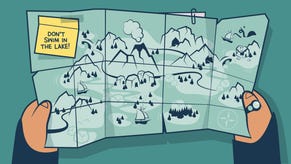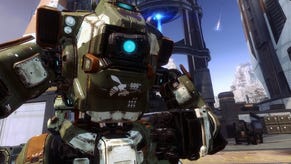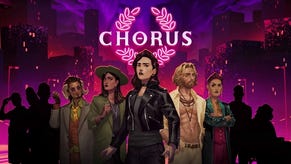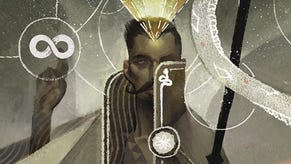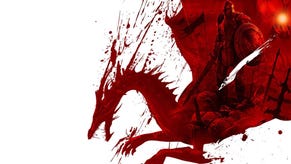Dragon Age II
The second cut is the deepest.
After 45 hours of bloody combat, fraught conversations and shameless attempts to have sex with elves, Dragon Age dumps me back into the real world with the comforting ping of an Achievement unlocked for good measure. The friendly lozenge contains just one word: "Epic". It's not wrong.
Dragon Age II is a big game. Not in the usual sense of lengthy playing times and sprawling maps (though it's no slouch in those departments), but in terms of its ambition and storytelling.
This is a game with a lot on its mind, a game that wants you to feel the weight of history, both ancient and personal, pressing down on you with every decision you make. It wants you to live through a story that spans a decade, taking you from penniless refugee to beloved champion.
It wants you to think, to immerse yourself in cultural conflicts that don't try very hard to conceal their real life parallels, to juggle questions of faith and free will, justice and security, revenge and passion.
It wants you to stitch yourself into its unfurling narrative tapestry, to feel every betrayal and failure even as you carve your way through another dozen Darkspawn. This, it says, is more important than fannying about in your backpack sorting out potions.
Only a churlish heart would fail to appreciate the effort.
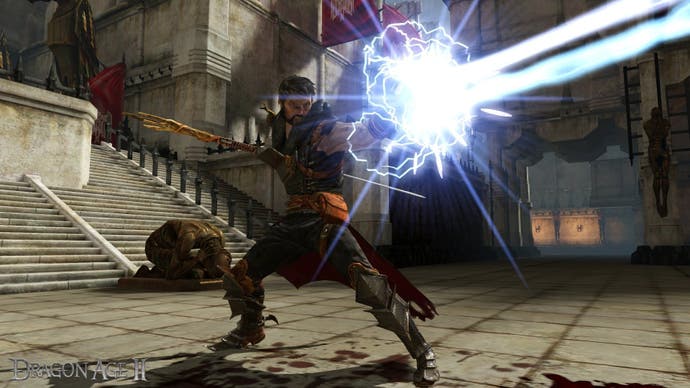
Much like Origins, Dragon Age II is a slow burner. It takes the form of three acts. You play as Hawke, an inhabitant of Lothering who flees with his family from the Blight during the events of the first game.
Escaping across the water to neighbouring Kirkwall, you arrive along with thousands of other Ferelden refugees and your welcome is predictably cold. If there's a version of the Daily Mail in this world, you can imagine the headlines.
The game then hops forward three years to tell the story of how you rise from asylum seeker to local hero. Then there's another three year gap, after which you... Let's just say that a lot of plot threads come together in an unexpected yet satisfying way, and the decks are cleared to make room for three interlinked stories to be told.
During the following hours of play, the saga spins out in a slow and steady way. The game manages the fantasy cliché of setting you up against an urgent world-threatening force, then letting you amble off to muck about doing odd jobs for any bugger who asks.
Here, the procrastination is entirely fitting. There is no villain in this game, or at least no single villain, and those who do fit that description will surely vary from player to player. The big boss at the end of Dragon Age II is an ideological choice rather than a huge monster. Which isn't to say there aren't any huge monsters in the game - of course there are - but you're always aware that defeating them isn't going to save the day.
This lends proceedings a more bleak and confrontational tone than Origins, which traded in Tolkienesque myth. Dragon Age II is, at its heart, a political game. It places greater stock in the way you approach questions of society and culture than the binary quest choices of the previous game.
Choosing to save or destroy some sacred ashes feels like small beans next to some of the decisions you have to make here. Things still have a natural tendency to eventually boil down to either-or choices, but the path to get there at least takes you through a lot of grey areas. Often, the best you can hope for is to pick the lesser of two evils.

